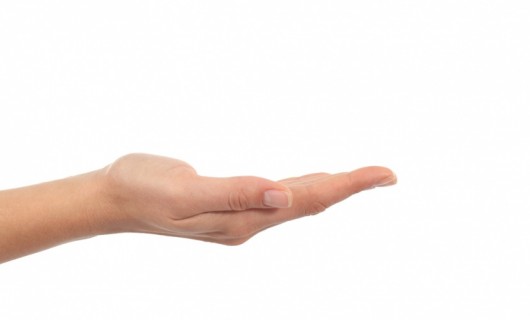6 simple steps for eating less (posted on 11.08.2014)
How many of you can recollect from (many) years ago those familiar words ‘you can’t leave the table until you’ve finished everything on your plate’? Or ‘think about those poor starving children in Africa’ as you tried to force one more potato or dreaded vegetable into your mouth so that you could go back outside and play? And how many of you today still a little bit guilty or impolite if your plate is still not clean regardless of quantities placed on it, whether at home, at a friend’s or at a business dinner?
I certainly can, and do! It’s amazing how culturally we have been conditioned to certain behaviors and habits around food, regardless of whether they serve us well or not. When it comes to food, practices such as the above example often mean that we have learnt to ignore our body’s natural hunger/ satiety signals, which are designed to keep our energy requirements in balance and operating optimally at every level.
For anyone with young children, how often do you see them eating and then proclaiming that they’re so stuffed they need to take time out slumped in front of CBBC to let their food go down? No, of course not – they’re straight back out on the swings or playing, full of energy! They are innately listening to their bodies and eating only what they need for the next few hours.
Food should leave us feeling energized, engaged and focused, not feeling like someone’s just burst our balloon and all the air is going out. Eating surplus to our requirements long term will negatively impact our weight and health; short term it will have an immediate effect on our energy, focus, engagement and moods. Apply these effects in the workplace whether it is post lunch, during a crucial business dinner, or at home with the family, and we are not operating at our best on any level. Indeed on reflection it sounds a little but crazy but we still do it, consciously or unconsciously.
Food is an integral part of how we interact socially whether at work or home. So how can we better manage our food in a way that leaves us feeling energized, engaged and focused on a daily basis? The good news is there are some really easy tools and tricks we can do to eat less and start to tune back in to our body’s needs with very little effort:
- Chew food properly – the digestive process starts the minute you put the food in your mouth. When you wolf food down at the rate of knots to get on to the next job, meeting, e-mail etc., you often hit the ‘food wall’ as you’ve found you’ve eaten far more than you needed. When you chew your food properly, not only does it help start the release of key nutrients, but it helps trigger the body’s satiety mechanisms, which will help you identify when you’ve eaten enough.
- Be conscious of your food – I’ve lost count of the amount of times I’ve been working away on the laptop with a packet of oatcakes open and look down to eat the ‘first one’ only to find the packet empty! Be mindful with your food, and take time to enjoy it.
- Use smaller plates – make life easy and take willpower out of the equation by having less space to put food on in the first place. Using smaller plates also means less waste, which alleviates our guilt over ‘clean plate’ syndrome.
- Stop eating when feel full – this sounds really obvious yet we STILL carry on eating even when we are reaching to undo that belt one notch. Try taking a 5 minute break and then ask yourself do you really need more?
- Plan your meals – avoid the sudden famine to feast, i.e. working away until you are starving and then proceeding to eat your body weight in carbs and fatty foods. By planning light and regular meals it means you are keeping your blood glucose levels in check and it helps you buy the healthier foods and snacks in advance.
- Exercise gratitude around your food – last but by no means least. Generally speaking we have a choice around the foods that we put in our mouth; the luxury of eating well (if we so choose) and immediate access to it. Sometimes just by taking a moment to be grateful for our food helps us appreciate it a bit better, and foster a healthier relationship with it.
Help your wellbeing take off.
Louise

Follow Us...